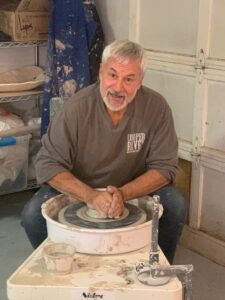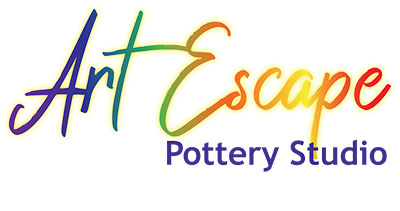
Hello, my amazing pottery enthusiasts! Today, let’s delve into the therapeutic wonders of creating pottery – it’s not just about crafting beautiful pieces but also nurturing your mental well-being. As your pottery teacher, I’m here to share the incredible ways working with clay can be a balm for the soul, aiding individuals facing various mental health challenges.
Firstly, let’s talk about stress – that ever-present companion in our lives. When you sit at the pottery wheel, it’s like entering a serene oasis. The rhythmic motion of your hands on the clay, the gentle hum of the wheel, all combine to create a meditative space. This process has proven particularly beneficial for individuals managing stress and anxiety disorders, offering a tangible way to center and ground oneself in the present moment.
For those dealing with depression, the tactile nature of pottery can be a powerful ally. The act of molding clay with your hands can provide a tangible sense of accomplishment, boosting mood and self-esteem. It becomes a therapeutic avenue to express emotions that might be difficult to articulate verbally, offering a silent language through the artistry of the craft.
Now, consider the transformative impact on individuals with trauma-related disorders. Pottery provides a safe space for expression without the need for words. The act of shaping clay, whether gently or assertively, mirrors the journey of healing. It becomes a metaphorical reclamation of control, offering solace and a means to process complex emotions.
Attention Deficit Hyperactivity Disorder (ADHD) can make focusing a challenge, but pottery allows for a kind of focused attention that is both engaging and calming. The tactile sensations and the need for concentration in shaping and creating help channel energy in a positive way, potentially benefiting those with ADHD.
Art therapy, including pottery, has shown promise for individuals on the autism spectrum. The sensory experience of working with clay, the predictability of the process, and the tangible outcomes can contribute to improved communication skills and emotional regulation.
For individuals dealing with Obsessive-Compulsive Disorder (OCD), the repetitive nature of certain pottery techniques can be a therapeutic outlet. It provides a structured and purposeful way to engage with patterns, offering a healthy channel for the compulsive tendencies often associated with OCD.
The beauty of pottery lies in its universality – it’s accessible to all ages and skill levels. For seniors, engaging in pottery can be a way to combat loneliness, stimulate cognitive function, and provide a sense of accomplishment. It’s a delightful way to keep those creative juices flowing and maintain a connection to a vibrant community.
Artistic expression through pottery has also been explored as a complementary therapy for individuals facing eating disorders. The tactile experience of working with clay can be a grounding and self-soothing activity, fostering a positive relationship with the body and promoting mindfulness around sensations.
Moreover, the group dynamic of pottery classes can be a tremendous source of support for individuals with various mental health challenges. It fosters a sense of community, reduces feelings of isolation, and allows for shared experiences. The studio becomes a sanctuary where individuals can express themselves without judgment, creating a bond among students on their respective healing journeys.
As your dedicated pottery teacher, my goal is to create an environment that fosters not only artistic growth but also emotional well-being. Seeing the transformative power of pottery in the lives of my students is truly inspiring. So, let’s embrace the therapeutic magic of clay, my friends. Whether you’re seeking stress relief, coping with mental health challenges, or simply looking for a creative outlet, pottery has the potential to be a healing journey for everyone. I’m here to guide you through this process with care and enthusiasm, creating a space where the therapeutic benefits of pottery can unfold for each and every one of you.
